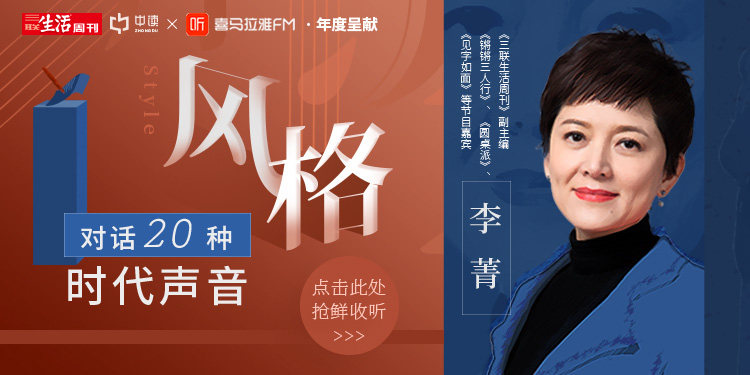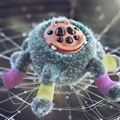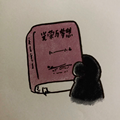加餐丨尤瓦尔·赫拉利: 历史不是关于过去,而是关于变化
作者:陈赛
2020-09-23·阅读时长1小时2分钟
大家好,我是《风格》的编辑。《风格》栏目已经逐渐进入尾声,非常谢谢大家一直以来的关注。在这里,可以为大家提前预告一下,我们之后的嘉宾阵容中将有著名作家阿城、历史学教授葛兆光及……(还要保密再保密一下的神秘嘉宾)。所以,为了保证后期的更新节奏,也留给之前欠课的小伙伴一点补课打卡的时间,从本周到十一假期止,《风格》将暂停更新。
今天给大家带来的重磅加餐是由《三联生活周刊》资深主笔陈赛对《简史三部曲》作者,著名作家尤瓦尔·赫拉利的采访。我们对整个英文采访进行了记录,为了方便大家理解,也将基本的中英文翻译在文案中进行呈现。欢迎大家勘误。
丨本集嘉宾丨
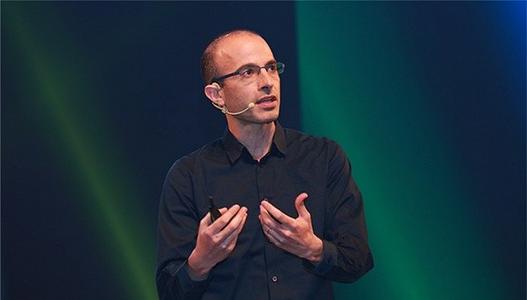
尤瓦尔·赫拉利:牛津大学历史学博士,现为耶路撒冷希伯来大学的历史系教授。著有《人类简史》、《未来简史》和《今日简史》。
这次采访是通过网络连线进行的,所以可能在音质上稍有些欠缺,还望大家谅解。陈赛同尤瓦尔·赫拉利主要围绕赫拉利的新书《人类简史》图像小说版(可以简单理解为“漫画版”)进行了交流。
这本书记叙了人类从石器时代至21世纪的演化与发展史,并将人类历史分为四个阶段:认知革命、农业革命、人类的融合统一与科学革命。
丨时间轴丨
【4:32】“漫画版”的《人类简史》带来了新的叙事可能性?
【10:32】 赫拉利最爱书中的哪一段?
【19:30】如果现在年轻20岁,赫拉利将如何看待现在的社会?
【27:19】在赫拉利的青年时期,哪件事对他后来成为历史学家产生了影响?
丨文稿丨
H: Hey, bon-you!
赫拉利:嘿,朋友!
C: Hi, Professor Harari! Thank you for the opportunity, and since we have very limited time, I think we can go straight to the questions one by one. Is that okay?
陈赛:您好, 赫拉利教授!感谢您能给予我们这次机会。囿于我们(双方)时间有限,我认为我们这边不妨直接开始提问,可以吗?
H: YEAH.
赫拉利:没问题。
C: So, the first question is, what's the purpose of this book? Why do you feel there’s a need for a graphic novel? I mean, do you think, maybe, particularly young people need such a big history perspective?
陈赛:我们提出的第一个问题是:您为何想写这样一本书?为什么您认为有必要创作一本图像小说?或许您的想法是很多人,尤其是现在的年轻人需要这样的大历史观?
H: The idea is to reach new audiences with a new style of writing & storytelling; to tell the history of the world, the history of humanity through all kinds of artistic genres. I mean, the basic genre is called the graphic novel. But every chapter — One chapter is built like a reality TV series, of a competition between different human species for survival; then another chapter uses detective movie to tell how humans exterminated most of the big animals of the world even before the Agricultural Revolution. So, instead of telling it like in a science book, we have a police detective, our Detective L, who investigated this serial killer, the greatest serial killer of all time, who killed almost most of the big animals in Australia, in America, and in other places; and she eventually discovered that this is homosapiens—our species, the biggest ecological serial killer of all times. And the idea is that this kind of storytelling will appeal to a larger audience; not only people who normally read science books, but also people who usually don't engage with these. And it's important because to deal with the challenges of the 21st century, it's imperative that all humans over the world will have a historical perspective on what's happening. For instance, on the ecological crisis we are now facing, or on the danger that technology poses to our species.
赫拉利:我的想法是,我要通过一种新的写作及叙述方法来获得新的读者;我想通过多种艺术体裁来讲述世界的历史,人类的历史,最基础的就是图像小说。在我所有的章节里,有那么一章的架构像一场真人TV秀,讲述了在不同的人类族类中发生的一场生存大较量。而在另外一章里我用了侦探电影的形式来讲关于人类在农业革命发生之前,就已经灭绝了大部分世界上的大型动物的故事。在那一节里,我没有用科学书的常见手法来讲述,而是安排了一位警探——我们的L警探——去调查一个神秘的连续杀人魔。他或许是历史上犯下最严重案件的连续杀人魔,因为他几乎杀死了大部分在澳大利亚、美国以及其他地方生活的大型动物!L警探她在调查中逐渐查明,喔!原来杀死它们的不是别人,正是我们人类! 而且亘古溯今,我们堪称是生态环境中头一号的连环杀手。我的想法是:这种类型的故事叙述方法会吸引更庞大的读者群,不仅仅会请来那些以前就已经在读科学书的人,还会有新的、平常不会读科学书的读者对它产生兴趣。我觉得这很重要;因为实际上,让所有人对于现在正在发生的事情有一种历史视野是亟待完成的一个任务——如此我们才能应对21世纪的种种挑战,比方说我们正在面对的生态系统危机,或者技术科学对于我们人类的威胁。
50000 years ago, our species, homosapiens, had exterminated all the other human species on earth. There were at least five other species, like the Neanderthals. We caused their extinction. Now we are in a similar situation to the Neanderthals. There is a new force on the planet, rising: Artificial Intelligence and other technologies. It might do what we did to the Neanderthals to us. We need a big perspective to understand this, because this is not about, you know, China versus United States, or Europe versus Asia. This is about humanity facing a completely new kind of Intelligence!
五万年以前,我们人类的居群铲除了地球上生活的其他的人种。曾经地球上至少有五个其他人种,比如尼安德塔人(尼人),而我们导致了他们的灭亡。现在,我们则站在了如当年的尼人一样的位置,一支新的力量正在从这个星球上崛起,那就是人工智能以及其他技术科学,我们当年对尼人所做的一切,也可能会是我们将来从人工智能那里得来的一切。我们需要一个宏大的视野来理解这件事情,因为您知道这并不仅仅是中国对抗美利坚,或者欧洲对抗亚洲一类程度的事情——这关乎到人类正在面对一个完完全全新品种的智慧!
C: So, it's not just for the young generation, it’s larger than the young generation—who normally reads graphic novels.
所以您写这本书并不仅仅是为了年轻一代,而是在追求比经常读图像小说的年轻一代更广的范围?
H: I think sometimes people associate comics with a young audience. But this is not really so. Comics can appeal to older people. Even people in their 80s and 90s can enjoy this kind of storytelling. And YES, I very much hope that it will reach a young audience, but I also hope it will reach people of all ages.
赫拉利:我觉得有些时候人们老是把漫画与年轻的群体挂钩,然而这是个误区。漫画完全可以吸引更高年龄层的人们——甚至于八、九十岁的老爷爷、老太太都可以享受这种叙事。当然,我也非常希望我的声音能够触碰到年轻的读者,不过我总的还是希望各种年龄段的人们都能喜欢它。
C: I guess it's the first time you write for graphic novel, so what have you been most excited about this new form of media? And what kind of new possibilities has this form of graphic novel offered you in telling you— you just mention a little bit in the first answer, but is there anything you can—
我猜这是您第一次尝试创作图像小说,所以我想问下,您在尝试这个新媒体创作的时候,有什么曾令您感到万分激动吗?同时,您著的这本小说有没有给您的叙事带来新的可能性?我知道您刚刚就已经提到了一点点,不过有没有地方您可以展开——?
H: But first of all, it's not just me. It's a collaborative effort. We have David, who is the co-author, helping to create the narrative. And we have Daniel, who is doing all the amazing drawings. And they are equally important for this project.
赫拉利:我首先想强调的就是,我们的这个作品是团队的结晶,并不是我一个人的:戴维是我的合著作者,他帮助了我们创作那些故事,丹尼尔则出色地完成了所有的绘画工作, 所以对于我们的这个企划来说,他们都同等重要。
As I said before, it's kind of — it wasn't a challenge to find a new way to tell history, the history of our species. You know when you draw things as an image, you have to answer many questions that in a plain text you don't even think about; like when you write that Sapiens met the Neanderthals, okay you just write it. Everybody can imagine it, whichever way they want. But when you draw it in a comic, you need to decide: how did the Neanderthals look like? What was their hair color? What was the hairstyle? What was their skin color? Were they females, males, old, young? And it's the same way with the Sapiens. We had a lot of discussions about all these issues. And for instance, in the book, the Sapiens is mostly depicted as more “Africa”, because Sapiens came out of Africa. You know, in a lot of comics you can see cave people and ancient humans looking like Europeans, but no, they came from Africa. So, it's much more correct to depict them as closer to Africans. And Neanderthals would probably have lighter skin and lighter hair color.
也如我之前讲过的,对我来说寻找到一个新的方式来讲述我们人类的历史并不是一个难事。但是您知道,当我们要用图像来表述的时候,我们就得面对很多在用文字来表达时不必考虑到的问题。比方说,我们用文字来写智人遭遇尼人的故事的时候一般就没有困难——写就可以了,想象的空间留给读者,他们可以随意想象;不过当我们要把这个场面画下来的时候就有不同了,就需要考虑了:尼人究竟长什么样?他们有怎样的发色?他们有怎样的发型?他们有怎样的肤色?书里的他们是女人还是男人?是老是少?对于智人,我们也需要有同样的考虑,因此我们在这些问题上有过很多讨论。再比方说:在我们的书里,大部分智人都长得更加“非洲化”,因为智人就是出身于非洲。在不少漫画里,您可能会看见很多穴居人与原始人长着欧洲人的脸庞,但这些信息是错误的,他们其实都来自非洲,因此,把他们的长相画得近似于非洲人是更正确的行为,而尼人应该会有更浅的肤色和发色。
So, this is a kind of thing in the original book that I didn't have to think about a lot. But suddenly it's very important, like you describe the invention of fire: When you write humans discovered fire, how to use fire, anybody can imagine the scene in their own minds. In a comic book, you need to describe who is the actual person with the fire stick, or creating fire with two stones. Now should it be a man or a woman? And in many cases, in older histories, all the main roles are given to men. And women are somewhere in the background holding a baby or something. And now we have (a question): Why? Why do we assume that it was men who had invented all the important things? Maybe it was women. So, these are the kinds of discussions that we had a lot while working on this book, and that I didn't need to do when working on— or not as much — the original version of Sapiens. And in a way, they say that a picture is worth of a thousand words. And it's also a much, much older form of art. People in the Stone Age did not have texts. They did not invent writing. Writings appeared in the Middle East; in China, only about 5000 years ago. But we do have amazing visual works of art from the Stone Age. All these cave arts and paintings and statues and so forth. So, it's, in a way going much and much deeper, in the human mind, to try and to engage with images; then just with words.
以上便是那些我在原书里不必考虑过多的地方,而开始制作图像小说以后,这些一下子就变得很重要:比方说你写到人类发现火并使用火,或许所有人都能在脑海中有个生动的画面,然而在漫画书里,您得画出那个握着火棍,或者击打燧石的人,你得描述这个真人,问题来了:此人应该是男是女?在老历史书里,大部分重要的角色都是男人扮演的,女人们就在背景里搂着婴儿,而现在我们提出问题:为什么?为什么我们要假定一切重要的都是被男人发现的?——也能是女人。这些就是我们在制作书的过程中经常要发生讨论的,而原来我在写智人的时候不需要考虑到这么多。从某种角度上来讲,有人说一幅画可抵千言万语,画作为一种艺术形式,可是比文字要古老得多:石器时代的人们并没有任何文本,他们当时没有发明书写与文字——书写与文字源于中东,在中国则尚有5000年左右的历史。石器时代的视觉艺术作品可以说是光芒璀璨,有各式各样的洞穴艺术、壁画以及雕塑。处理视觉画面的能力在人类的思想中变得越来越高深,直到后来我们人类才处理起了文字。
C: So all the new stuff that you think about when you were writing for the graphic novel, it is not only small, little details— it is as important as the main narrative history as well?
陈赛:所以,您在创作图像小说时的新想法并不只是一些小细节,它与历史的主叙述同等重要,对吧?
H: Yes, I mean, of course there are also little details, but the really important things, the big questions are: What were the relations between humans of the Homosapiens species and other human species, like Neanderthals, or like Denisovans, like the dwarfs from Flores Island? There was an island entirely populated by dwarf humans, that even as adults, they reached maybe just one meter, and weighed twenty-four kilograms. But they could still produce stone tools. They could use fire. They hunted elephants and other big animals. Understanding what is the relation between us and these species is not just a historical question. It's really a philosophical question. What does it mean to be human? WHO ARE WE? So this was one real big question that we engaged within the book. And questions like what I said before, like thinking about the different roles of men and women, are also very central to the book. And this is something that I could— in the original text that I wrote ten years ago— often bypass. When I wrote a text, I just didn’t mention whether fire was discovered by a man or by a woman. But the visual language, it demands that we constantly ask ourselves these questions, so I think that the new book is not just a re-telling of the old story. It's a completely fresh perspective on human history.
赫拉利:是的,我是想说这其中也确实有些是小细节,不过真正重要的事情——真正的问题是:智人种群的人类与其他人类种群有过什么样的关系——比方说与尼人,丹尼索瓦人,或是佛罗里斯岛的侏儒们?曾经有个岛屿上居住的全部都是小矮人们,就算是成年人也就只能长到一米,体重约24千克,但是他们依旧能制作石器、用火、狩猎大象及其他庞然大物。理解我们与他们这些种群的联系不仅局限于历史问题——它实际上是个哲学命题:人类的定义是什么?我们究竟谁?这是我们的书涉及到的一个很重大的思考命题。其他的问题,譬如我之前所提到的男女角色问题,也是书的核心问题之一,它是我十年以前写原作的时候通常会忽略掉的一种思考,当我写一个文本的时候,我是不会提到究竟火是被男人,还是被女人发现的。不过视觉语言往往就需要我们不停地问自己这些问题,所以我觉得这本新书不完全只是旧瓶装新酒,而是一种人类史上全新的视野。
C: Okay, very interesting. Can I ask what do you enjoy most? In which part do you enjoy the most in writing this novel?
您说的非常有趣,我可以问您最喜欢的是书里的哪一个部分吗?
H: I enjoyed it a lot, much more than I expected. It was really, really fun. When I think about the experience of working with David and Daniel, I mean, it was fun. It's like Ping-Pong of ideas and images, back and forth, “Let's do it like this.”“No, no, no, let's do it like that.” For me, maybe the most fun was to break all the academic conventions about how you write history. I never thought that I would write history as a detective story. It was a real detective, going and looking for evidence, questioning witnesses or things like that. There is another chapter about superheroes. We explore human communication and the ability of humans to cooperate in large numbers through a superhero story— about this fictional superhero, Dr. Fiction—which incorporates, or personifies mainly the most important human superpower: The power to invent and create stories.
赫拉利:我非常享受这个过程,远高于我的期待。当我回想起我与戴维、丹尼尔共事的经历的时候,我总是感觉它非常非常有趣,这大大超出我的预料,真的非常非常好玩。我们就像在玩关于创意与图案的乒乓球一样,你来我往,一个说:“我们这么样做。”另一个就说:“不行不行,我们得那样做。”对我而言,最有意思的事情莫过于打破所有的写历史的学术传统:我从来没想到我会用写侦探小说的笔法来写历史:就像是真正的探案那样,需要去收集证据,询问证人如何如何。我们还有一个章节讲的是超级英雄, 我们通过一个超级英雄类型的故事探索了人类交流的进程以及人类进行大规模合作的能力,这个虚构的超级英雄叫“小说博士”,象征着一个非常重要的人类的超能力——发明与创作故事的“神力”。
We rule the world, and not the Neanderthals, or the chimpanzees, or the elephants, because we cooperate in larger numbers than any other animal. And we can cooperate in large numbers because we can create and believe fictions. Any large-scale human cooperation, not just religions—which is obvious, but even something like economics, like trade networks, is based on fictions. Money and corporations are maybe the most successful fictions ever invented. Money is not an objective reality, like, I don't know, a banana that you can take and eat. Money is just a story, and you have these powerful storytellers— the bankers, the finance ministers; they tell us a story that this piece of paper is worth a banana. If everybody believes it, it works. And we personified this superpower with the character of Dr. Fiction, which is at the heart of how our species conquered the world. Now again, when people think about the superpower, they think about something like being invisible, flying faster than the speed of light, or something like that; but actually, our real superpower is this ability to create fictional stories which unite millions, sometimes billions of people together. People think that we are smarter than the other animals; but actually, we ruled the world because we believe in more nonsenses than the other animals. Yes, other animals don't know that “e equals mc squared”, but you can't rule the world just by knowing that “e equals mc squared.” Even if you want to build an atom bomb, just knowing “e equals mc squared” won't build an atom bomb. You need millions of people to cooperate to build an atom bomb, to dug uranium, to build the bomb, to build the missile. Now how are you going to make millions of people cooperate? Not by telling them “e equals mc squared.” It might be true, but it doesn't convince anybody to cooperate. You tell them some fictional story about a god, about a national mythology, about something. Because they believe the story, they cooperate to build the bomb. And that's our superpower.
之所以是我们,而不是尼人、猩猩或是大象在统治这个星球是因为我们比其他动物更会大规模协作,而我们之所以会协作是因为我们会创作,并深信我们的虚构故事。任意一种大体积的人类协作过程——不仅仅是大家都知道的宗教,甚至于是经济学、贸易网等——都是基于一种虚构。货币与大型企业则大概是人类史上最成功的虚构小说。钱不是一个实物,不像是,比如说一个香蕉,你可以拿起来吃掉。钱只是一个故事,假设有五花八门的讲故事的人——比如银行家,金融部长等,会给你们讲一个关于一张纸等值一个香蕉的故事,假设所有人都信了,那么这个故事就有效力,而我们把这种超能力——我们征服世界的核心原因——凝缩成了“小说博士”这一形象。很多人想象超能力,可能都会想到隐身术、超光速飞行等等,不过实际上,我们真正的超能力在于创造这些虚构的小说故事,来把百万,甚至十几亿的人团结到一起;有人以为我们比其他动物聪明,但是我们统治世界恰恰是因为我们比其它动物更容易相信一些鬼话。是的,的确其它动物不懂得“E=MC² ”, 可是你不是只是通过知道“E=MC² ”而统领这个世界的,就算你想制作一个原子弹, 只知道“E=MC² ”这个公式可不行,你需要百万人去合作制作原子弹,挖铀、造出弹头再造出导弹。现在问题来了,你如何发动这一百万号人?靠跟他们说“E=MC² ”?这个公式可能是真的,但是它不能说服任何人去协作,你得讲点虚构故事,比方说关于一个神,关于一个国家神话等等。因为他们相信这个故事,他们会协力去造原子弹,这就是我们的超能力。
C: Yeah. How do you assume the young readers would respond to the uncomfortable historical truth about our species, especially the fiction- part that you just mentioned a lot? If I understand you correctly, you think story books are both as our burdens and as a necessity for the world to function, so how should younger people—I care about younger people — in particular, so how do you think they (should) handle balance? I interviewed you a few years ago, and you said the stories are collapsing. All the old stories are collapsing and new stories haven’t been formed. So how is that more difficult for the younger generations than us? How do you think of that?
在您的设想之中,年轻读者会对您提到的,关于我们的种群的让人不安的历史真相——尤其是关于虚构小说那一块的内容作出什么样的反映呢?如果我理解得没有错的话,您认为故事书是我们的一种负担,但同时是让世界运转如常的必需品,所以您觉得尤其是年轻的人该如何把握其中的一种平衡呢?几年前我曾经采访过您,您讲到故事正在崩溃——所有的老故事都在碎为齑粉,而新的故事尚未化形,您为什么会觉得,这给新一代带来了更多困难?
H: Yeah, I think we are at a very difficult moment in history because of the collapse of the old stories and the vacuum they are leaving. Now, I'm not saying that stories are bad. Stories are essential for human society, for human cooperation. If everybody stops believing in money, the entire economy immediately collapses. You go to a shop, but you can't buy anything, so it's not bad to have stories. The problem is, when you believe a story so much, you forget it's just a tool to help us to cooperate. If you start killing people because you believe in some story; then instead of using the story to help you cooperate, you're being enslaved by this story. I often say that people, all of us, live inside the dreams of dead people — all these stories that people, centuries ago, invented. They shared the dreams. And we still live inside these dreams: Religious dreams, national dreams, economic dreams. This is not bad, necessarily, but we have to remember that these are tools we created to help us. We shouldn't be enslaved by them.
赫拉利:对,我确实认为我们现在站在一个艰难的历史时间上,因为旧故事已经倒台了且留下一片“真空”地带。当然我必须得说明,我并不是想说故事的作用都是坏的。故事对人类社会、个体以及人类的团结都有举足轻重的意义,如果所有人都停止相信货币的价值,我们的整个经济体系会在顷刻间崩塌,去商店的人买不到任何一样东西,所以人类社会有一个故事并不是坏事。问题是当您湎于一个故事的时候,您会忘记它实质上只是一个帮助人类协作的工具:如果因为您很深信一些故事,因而开始杀人,那么实质上您是被这个故事驱使了,变成了它的奴仆。我常说我们人类是生活在逝者的梦里,这些梦其实就是古人们在几个世纪以前创造的故事。古人们分享,传继了这些梦,而我们留连其中——比如说有:宗教之梦、国家之梦、经济之梦……必要地说,它们都不是坏的,但是我们需谨记它们只是我们自己创造,使其为人类所用的工具,我们不能沦为它们的仆役。
The key is you can ask yourself; if you want to know whether something is just a story that people invented or something real, you should ask yourself whether it can suffer. Money can't suffer. A nation can't suffer, even if there is a war. Nations don't have a mind. They don't have feelings. They're just a story we created. They don't suffer. Humans suffer. Animals also suffer. If a story helps us to alleviate suffering, to make people suffer less, then it's a wonderful story. But if in the name of a story, we create more suffering, then that's a bad story. And we need to change it, and we are able to change it. And we see that very often, people change the stories in which they believe, like people believe that you have an emperor that rules in the name of the gods, and it's okay. If you oppress all the people, and at a certain point, you have a revolution. And you can top off the emperor, and you stop believing in this story; or you have a story that men are better than women, that men are smarter or more brave or purer than the women, so they should rule. And for thousands of years, people believed that story, so they don't believe that women should be ministers, or women can be independent. And then at a certain point, in the modern age, people realize, “No, this is just a story somebody invented. It's not true.” So, we can change the story. You can stop believing in it. And this is the feminist revolution, which has done tremendous good deeds to humanity. But we can't live without some kinds of story. What's happening now in the world is that we see the old stories collapsing, and there are no new stories about the future. People find refuge or try to find refuge in old stories about the past, so you see a rise of all kinds of religions and nationalism. People run to that, but these stories, they don't offer any solutions to the big problems of the 21st century. What to do about ecological collapse? What to do about the rise of artificial intelligence? You don't have answers to that in the old religious and national mythology, so this is a very big danger we are facing.
其中的关键在于您可以询问自己的心灵——如果您想知道哪些东西是人造的,哪些东西是真的,您应该问自己,这个东西会觉得痛苦吗?货币不会痛苦,国家不会觉得痛苦——哪怕正有一场战争;国家无法孕育自己的思想,亦没有感情,它们只是我们创造出的一个故事,所以它们受难时不会感受出痛苦。而人类会痛苦,动物也会。如果一个故事能帮我们减轻痛苦,那它是一个美妙的故事,不过如果它打着故事的名义给世间制造了更多苦难,那么它糟糕透顶。我们应该改变它,我们也有能力这么做,其实这很常见,人经常以他们的意志改变一个故事,就好比说过去人们相信皇帝是君权神授的,所以他们同意有皇帝这一套;不过当这个皇帝暴戾地压迫所有的臣民,那么到了一个爆发点,革命就诞生了,皇帝就被推翻了,然后就没有人相信君权神授的故事了。或者说,古有一个故事说男人比女人强,男人比女人更聪明、勇敢、高洁,所以他们天生该是统治者;千百年来人们相信这个故事,所以他们不相信女人独立于男人,也可当宰相这些事实。然后到了历史上的某一天,到了现代,人们发现:“这只是某个人乱编的故事,不是事实。”所以他们开始改写故事,停止相信它,而这就是女权运动的果实、人类的福音。可是我们始终无法脱离故事而活,现在我们看到的就是,旧的故事正在倒台,然而新的关于未来的故事还未出生,因而有人耽于关于往昔的老故事,因而您可以见到无数宗教与国家主义的死灰复燃。人们都很愿意买账,不过这些故事并没有提供21世纪的问题的解决办法;我们面临生态系统恶化的危机该怎么办呢?对于人工智能的兴起,我们该做什么呢?这些问题是老的宗教与国家神话无法解答的。我们面临很大的危机。
C: Okay, let's do a thought experiment. Let's say if you're twenty years or thirty years younger than you are now, you are a young person and you're dealing with a world like today we are dealing with. How would you feel about that world? What difference would it make if you read your own book, like, what you wrote today? What difference would it make?
陈赛:好的!我们现在先来做一个思想小实验:假设您能返老还童20岁或者30岁,您现在是一个年轻人,面向着一个我们今天的社会,您觉得您对这个世界会有什么样的感受?再看了您写的这本书,您会有什么样的变化?
H: It's very difficult to imagine yourself as somebody else, because you will be somebody else. But I think the key thing to realize as a young person is that: For the first time in human history, the adults don't know how the world will look like when I’ll be an adult myself. If I'm like thirty years ago, I'm twelve or fourteen; I will think about how will the world look like when I'm forty. In any previous time in history, I could go to my parents, to my grandparents, to my teachers, and ask them, “Mom, Dad, Grandma, how would the world look like when I'm forty? How would my life look like when I'm forty?” Of course, they are not prophets. They can't give you the exact answer, but they can give you a pretty good picture of the basics of human life: How the job market would look like? What is the family structure in thirty years? Now they have no idea. Nobody knows how the job market would look like in 2040s or 2050s. What kind of skills will you need? Which is why we also don't know what to teach our young people today. So, the most important lesson for a young person is that you will need to reinvent yourself repeatedly throughout your life. The only thing we know for sure about the world when you're grown- up is that: The world will keep changing at an ever-increasing pace. It's not like you learn some professions, and then you work in that profession for your whole life. That's gone. You ask young kids: “What are you going to be when you grow up?” Somebody says, “I want to be an astronaut.” Or a firefighter, or a journalist. They are thinking: “I'm a firefighter all my life.” And then “a journalist all my life.” But these kinds of things, they are gone. Maybe you'll be a firefighter for ten years. And then when you are thirty-five or forty, you don't need human firefighters anymore because robots replace them. Maybe they would replace the astronauts. Maybe they would replace the journalists. There will be new jobs for humans. I don't think that automation will just take all the jobs. Automation will create new jobs, but we can't even imagine what these new jobs will look like.
怎么说呢?想象你自己是另一个人是很难的,因为你就不能是自己了。不过我觉得我如果做一个年轻人的话,最需要了解到的是:我们处于人类历史上第一个时期,成年人无法告诉年轻人,在他们大后,世界会是什么面貌的时代。假设我回到三十年以前,我那时是12或者14岁,可能会考虑当我40岁时世界的样子。在早于现在的任何一个历史时期,我都能找到我的父母,或是祖父母、老师,问他们:“妈妈,爸爸,祖母,我40岁的时候世界会是什么样啊?”显然他们不能未卜先知,他们不可能给我一个准确的答复,不过他们会给我描绘一个大致的基本人生图景:到时候的职业市场会有什么样的境况,三十年后的普通家庭结构会是什么样子的……如何如何。现在他们完全不知道了——没有人能够预知2040年,或者2050年的职业市场会是什么样的;你需要准备什么样的技能呢?——因此我们都不知道该怎么教导现在的孩子了。所以,对年青人最重要的一课是:你需要重复地在你今后的人生里重塑自己。我们对你们的未来只能肯定一件事情:世界会以前所未有的速度加剧更新的速度。曾经的专攻某域、 从一而终的时代已经逝去了。你问问小孩子他们未来想做什么,有的孩子可能会说:“想当宇航员!”有的想当消防队员,还有新闻记者,他们都会说:“我一辈子都要做这个!”长大后也许你只会当十年的消防员,然后当你35、40来岁的时候, 人类消防员就已经被机器人给取代了,也许未来它们还会取代宇航员和记者们。毫无疑问,给人类的新的工作机会也会涌现出来,我不认为自动化会剥夺所有人的工作;自动化自然会产生新的工作,但是我们甚至无法想象这些工作会是什么。
Even today, like today you have people who make a lot of money from being Youtubers, or bloggers or having an internet channel. Now if you go back twenty years when this person was a young child, and you tell that person: “Oh, when you grow up, you will be a Tick-Tok celebrity. What you will do is make these funny little videos and post them online. And this is how you will make money.” Nobody would have any idea what the hell you are talking about. How? What does it mean? What is “Online” and how can you make money for making these silly, short videos? That is not a job! But today, that may be a safer job than a lot of old-fashioned professions. So, in a similar way, when we try to think twenty years to the future, many of the jobs that will exist in twenty years —we have no idea what they are; even if somebody from the future comes now and tells us this is my job in 2040, we have no idea what this person is talking about. So, the main message to young people today is that: You will just have to reinvent yourself throughout your life. So, you willneed a much more flexible mind than any of your ancestors. You will have to keep changing.
更深一步讲,今天您能看到不少人通过做油管视频制作者、博主或是开通自己的网络频道,挣了不少钱,但是如果您现在穿越到20年以前,回到那个人还是孩子的时候,对他说:“嘿,你知道等你长大了,你会是一个抖音红人吗?就是你会制作这些好玩的短视频,发布到网络上来挣钱!”不会有任何人知道您在说什么鬼话:这是什么意思?挣钱?怎么挣?什么叫“发布到网络”?你怎么通过搞这些傻气的短视频来赚钱?这又不是一个“工作”!不过今天,通过当网红来赚钱可能会比一些老工作来得更加保险。相近地,如果我们尝试畅想20年以后会存在哪些工作,我们根本想不出来。就算有人从未来回来告诉我们,他在2040 年从事什么样的工作,我们也不会明白这人究竟在说什么,所以我主要想传达给现在的年青人的讯息是:你将不得不一直重复重新“塑造”自己的这一过程,因此,你得锻炼出比先辈们更敏捷、更有弹性的思维模式。你将不停地改变自身。
C: Would your graphic novel help them to realize that?
陈赛:您的图像小说是否会帮助他们了解到这一些呢?
H: For some extents, for it gives you the big historical perspective about who we are and what is the meaning of the changes we encounter.
赫拉利:在某些程度上,可以说是的,因为它给了你一个关于我们是谁、我们遭遇到的变化有何喻义等宏大的历史视野。
I gave in earlier this example of the danger to the survival of our own species; to understand that,the best analogy is what happened 50000 years ago: When you have these different human species on earth in different parts of the world. And then these new species, homosapiens, came out of Africa and spread everywhere, and caused the extermination, extinction of all these different human species. And this is what we are facing in the 21st century. There is a new kind of entity, a new kind of intelligence emerging from the research laboratories, all these AIs, and machine learning, and things like that. And in a hundred years, the world might be dominated by completely new kinds of entities, which are more different from us than we were different from the Neanderthals. Some people imagine it as a kind of alien invasion. Now suppose that somebody comes and tells you, “Look, there is a fleet of spaceships, coming from a distant planet with a superior alien intelligence on board. And they're on the way, and they will be here in 30 years.” Now imagine the panics in the world. If this news will break: Aliens are coming in 30 years, superior intelligence. Now, this is the case. It's just not coming in spaceships from another planet. It's coming from within our own world, from the research laboratories. There is an alien intelligence on the way, superior to human intelligence. It will be here in 15 years, 20 years, 40 years, something like that. And it's not necessarily malicious. It's not evil. It doesn't want to destroy us. But it will change the world in such a way, that the life of humans, like you and me, might become meaningless and irrelevant.
早先我曾提到关于我们族群在延续上所遭遇的危机的例子,我们要明白,关于这个例子我们所能举出的最好的类比就是五万年以前的事情:在地球上,多元的人类种群生活在世上不同的角落,然后突然来了这么一个人类种群“智人”,他们从非洲而来,然后往各地开枝散叶,最终导致了其他的所有人类种群的大灭绝。这样一个事件神似我们21世纪所面对的情况,一个新的存在体——一个新的智慧体正在从我们的研究实验室诞生:那就是人工智能,以及机器学习种种。在一百年后,地球也许完全被新的存在主宰,而它们与我们之间的不同,会比我们五万年前与尼人之间的不同更加夸张。有些人曾经假设过外星人入侵,现在请您想象一下,如果有个人过来告诉我们: “听着,那边有一个太空飞船舰队正从遥远的星球过来,上面搭载着一批远超我们的超级外星人!它们正在路上,大约过个30年,就来了!” 如果真有这么一个特大新闻被曝光,讲到一个三十年内会过来的高级外星人舰队,请您想想世界会陷入一种怎样的恐慌。现在的情况也差不多是这样,不过不是从异星球的飞船上来,而是从我们的世界里,我们的实验室里诞生。一种陌生又奇异的智慧体正在到来的路上——远比人类高明,也许等上15年,20年或者40年的时间,它就会来了——当然它也不一定会心怀鬼胎,它并不邪恶,也不想摧毁我们,不过它会使我们的世界发生剧变,以至于可能普通人类的人生,如你我的,会变得毫无意义、浮幻虚无。
C: I only get time for the last question. When you were young, what's your biggest longing in the fear? How do you feel about your uncertain future? Has there been any books that ever offered comforts for you?
陈赛:我们现在只有时间进行最后一个问题了:当您年轻时,您在恐惧中最大的渴望是什么?您当时对您的不确定的未来有什么感受呢?有没有一本书给过您巨大的慰藉?
H: Which books influenced me when I was younger?
赫拉利:您是说,我年轻的时候有哪一本书影响我最深?
C: Yeah. Is there anything in your teenage years that has special connection with what you do today as a historian?
陈赛:对,我的意思是,在您的青少年期,是否有某事或某物对您今日成为一名历史学家有特别的关系?
H: I was very much influenced by history books. And much of my interest in fictional stories came out of that. I'm gay, and it took me quite a long time to realize it. It was only when I was twenty-one that I finally realized that I was gay. When I was growing up as a boy in Israel in the 1980s and early 1990s, I heard constantly these stories that: Boys are supposed to be attracted only to girls, never to other boys. If you're attracted to another boy, you make god angry, or you're breaking the law of nature or something like that. And actually, reading science and reading history made me realize that this is just a story people invented. There is no god above the clouds who doesn't like boys to go on dates with other boys. It's just a story somebody invented. Even if there is a god above the clouds, he is likely to punish people for things like violence, for things like hatred. But no good god will punish anybody for love. And similarly, with science, gay people don't break the laws of nature. You can't break the laws of nature. The laws of nature are not like a law of a country. A country can make a law: You can't drive more than a hundred kilometers per hour. And then you break the law, the policeman comes and gives you a ticket, “You broke the law.” Nature doesn't work like that. The laws of nature cannot be broken. If there is a law that you can't travel back in time, it's the Law of Physics. It's not that you cannot travel back in time. But if you do it, a galactic policeman will come and give you a ticket. No, it just can't be done. If you happen to travel back in time, it means there is no law of nature against it. It's the same with sexual attraction. Gay people, lesbian people obviously exist. So, if two women can fall in love, it means that there are no laws of nature against it. Something that nature really prohibits just doesn't exist, like traveling back in time.
赫拉利:我那时候深受历史书的影响,我对虚构的故事的兴趣也主要是那儿来的。我是同性恋,我是经过了很长时间—— 直到我长到21岁,才发觉。大致在八十年代到九十年代初,当我还是个在以色列生长的小男孩的时候,我曾对一些故事深信不疑, 那些就是:男孩一定只能喜欢女孩,从来不会喜欢男孩;如果你爱上了一个男孩,你会让主发怒,或者你会打破自然规律,如何如何……然而在阅读科学与历史读物的过程中,我醒悟到这些只不过是人编造的故事。云端上没有个会反感男孩约会男孩的造物主——不过是被编造的故事罢了。就算真有这么一个造物主,他更可能倾向于惩罚施暴作恶之徒,或是惩罚撒播厌恨之人,没有哪一位性善的神明会去阻挠爱人。相似地,在科学上,同性恋人也没有打破自然法则。一个人不可能会打破自然规律,因为自然的法则并不像一个国家的律令,一个国家可以颁布这么一条法令,禁止你的驾驶速度超过时速100 km,当你违反了这条法律的时候,一个警察会走过来给你一张罚单,这叫违法。 然而自然可不是这样运作的,自然规律是无法被打破的。有一条定律告诉你,你不可能逆时间行走,这叫“物理学定律”, 它的意思不是说,自然法律规定你不可以穿越回过去,如果你那么做了,一个星系警察会过来给你张罚单。如果你真的逆时间而走,那只能说明自然没有这样一条法则会与之相悖。性吸引是同理的,男同性恋人、女同性恋人很明显是客观存在的,所以如果两个女人能相爱,这说明没有哪条自然法与之相悖。自然若真是禁止了什么事,那么这个事情根本就不会存在,比如“时间旅行”。
When I realized it, it was a personal liberation for me. And these fuels—even today, my deep interest in these fictional stories — how is it, that’ somebody invented a story, and for thousands of years, people continue to believe this story and not just believe in it— it can make millions of people miserable just because of this story. So, this is a powerful impact on my view of the world.
当我察觉到这一点的时候,我的自我获得了解放,直至今天,我对虚构小说的深沉的热爱依然是我的 “燃料” -- 为什么当有一个人编造一个故事出来,过了千百年人们依旧会去相信它?不仅是相信,甚至会导致数以亿计的人们因此受苦——这一事迄今依旧给我的世界观造成极强大的震颤。
C: So that's why you put a gay Neanderthals in your graphic novel, right?
陈赛:所以这就是您为什么在图像小说里加进了一对同性恋的男性尼人对吗?
H: Yeah. Maybe there are also gay Neanderthals. We know that there are gay chimpanzees. We know that there are gay eagles. It is quite common in the animal kingdom. It's certainly not unique to humans. So, all evidence indicates that there are probably also gay and lesbian among Neanderthals.
赫拉利:是的。也许在尼人的时代也有同性恋。我们知道这个世上已经有了同性恋的猩猩、同性恋的鹰,所以这个特征在动物王国里其实挺常见的,不只是人类独有的,因此有不少证据可以指出:尼人中可能也有同性相爱的。
C: So it's your special message. Thank you very much. Thank you for your time.
陈赛:所以这是您留下的特别的讯息。感谢您给我们留下的时间。
H: Thank you.
赫拉利:谢谢。
翻译整理:樊菁菁(实习生)
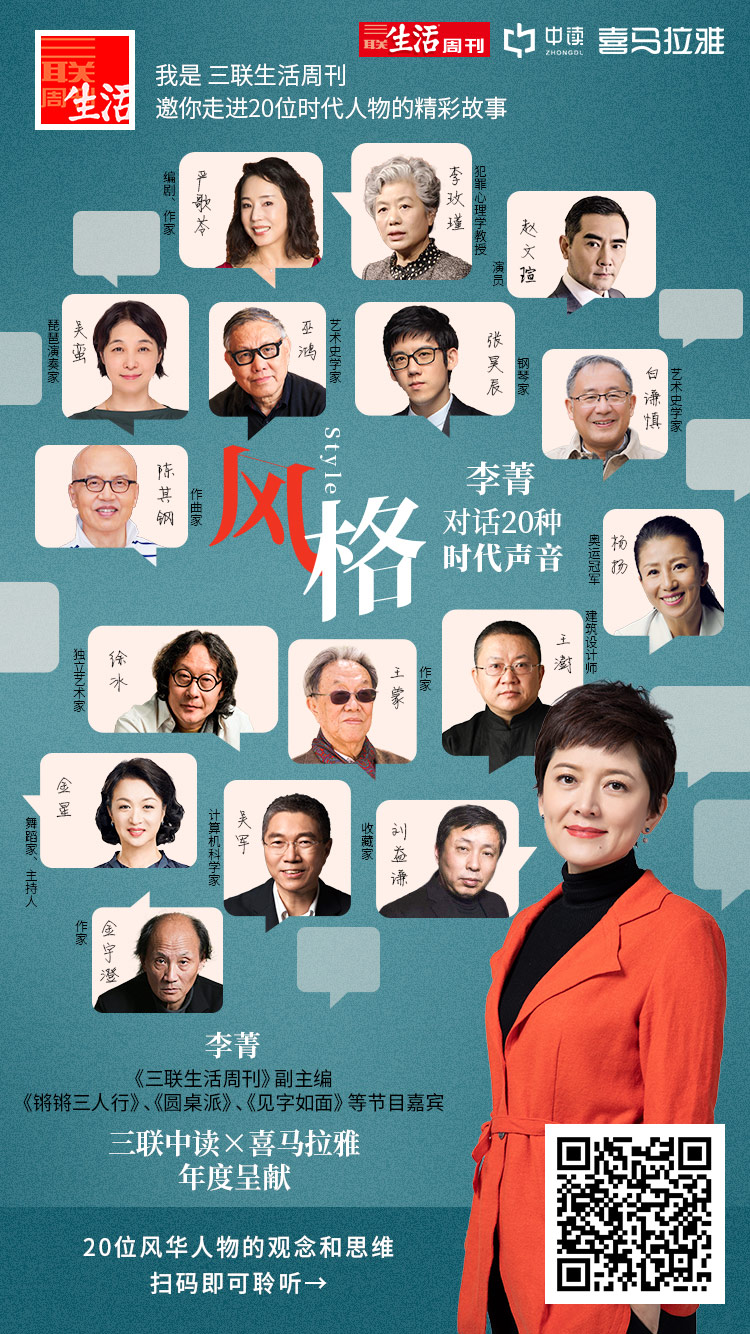
文章作者


陈赛
发表文章232篇 获得5个推荐 粉丝4068人
《三联生活周刊》资深主笔
收录专栏
现在下载APP,注册有红包哦!
三联生活周刊官方APP,你想看的都在这里
